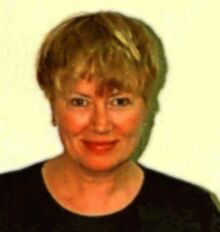Next Profile
Achievement Profile: Anthea Tillyer
A Visionary Who Helped Build the ESL Internet Superhighway
Anthea Tillyer is one of the Internet pioneers in the
ESL profession. She created the world-famous TESL-L mailing
list in the early 1990s, nurturing its growth from when it
was only growing at a rate of about ten new subscribers each week to
the present day, when nearly 30,000 English professionals
from all over the world exchange ideas via the TESL-L listserver.
The ESL MiniConference Online newsletter is honored to share
Professor Tillyer's comments from a recent interview.
Some Anthea Tillyer links:
Teachers of English to Speakers of Other Languages Electronic List (TESL-L) (Join today!)
What is your main ESL activity now? What are your
principal projects, and what is on the back burner?
My main projects are all related to instructional technology, primarily
online teaching. In teaching, I teach various online writing courses for
the US government and also for the City University of New York. My other
project is as assistant to the Director of Instructional Technology for the
City University of New York. In that position, I am currently creating
online help files for CUNY teachers who want to use technology.
How did you start your ESL career? Who influenced
your decision? What were some important formative
experiences in the early stages of your development?
Like most ESL teachers, I think, I fell into it. My first interest and
studies were in economics, particularly the structure of colonial
economies. But I also had a huge interest in the poetry of Arabic Spain and
the whole Arabic era in Spain, and eventually I switched my major to
medieval Spanish literature. Once, when I was doing research in Spain and
giving English classes to supplement my post-graduate study grant, I found
that I really enjoyed teaching English and that English was a fascinating
language. So I switched my graduate studies yet again to English
linguistics and have been teaching ever since. I am glad I made the switch.
And I remind myself that if I think I am underpaid as an ESL teacher, the
prognosis for specialists in Arab-Spanish literature is even bleaker!
What are the four or five language/culture backgrounds
with which you are most familiar as a teacher? Which
ones are you familiar with from the perspective of a
language learner yourself? What insights have you
gained in how to meet the needs of English learners
from these cultures and language backgrounds?
I am bi-lingual in French and English, the languages I learned in the bosom
of my family (so to speak). I learned Italian as a child living for two
years in Italy. I didn't study it, I just learned it by being thrown into
it. Although I have lost fluency when speaking Italian, I have perfect
understanding still when I hear it or read it. I'm sure the background of
these languages has helped me learn Spanish and Portuguese. But I another
language helped me more than almost everything else as a teacher and a
student of language - Latin! My education was such that I studied Latin for
TEN YEARS. It was required and I absolutely HATED it because it was
required and badly taught. Now, however, I find I know a lot of Latin and
that my understanding of its highly inflected grammar and my miserable
experience learning it are the things that have had the most influence on
making me a good language teacher myself. I studied Spanish in school and
then again in graduate school, of course. As part of my graduate studies in
medieval Spanish, I was able to see almost the exact moment when Spanish
and Portuguese became distinct languages rather than similar dialects. That
was exciting! I have never studied Portuguese, but I can speak it and
understand it reasonably well, though I suspect that I am often just
speaking medieval Spanish!
I am familiar with Iranian culture and the Persian language (now largely
forgotten except for the script which is mostly the same as Arabic) because
of having been married to an Iranian. I greatly value the languages and
culture of the people of the Middle East, and I include Arab Spain in that.
I don't think that my experiences as a language learner have helped all
that much with my teaching, except that I know that I love Spanish and
learned it easily mostly because our teacher used music as the basis of all
classes! We all learned a lot and enjoyed ourselves. But I was a highly
motivated language student, bi-lingual by the age I started school. So my
circumstances were different from those of my students. I think talking to
my students is the thing that has helped me relate to their issues best.
If you had to give three pieces of advice to a
new ESL teacher, what would they be?
Smile.
What do you see as the most important issues
facing the ESL/EFL teaching profession today?
1. Access to technology and materials in the developing world.
2. The appalling working conditions and status of many ESL teachers. EFL
teachers are better off, but ESL teachers need to organize.
Interviewed by Robb Scott
2002 ESL MiniConference Online
The InfiNET Possibilities: English Teachers on the Internet (1997)
The TESL-L Electronic Network (1995)
Electronically Yours: Cross-Cultural Communication through E-Mail Penpals (1993)
Beyond Portfolios: Looking at Students' Projects as Teaching and Evaluation Devices (1992)
An ESL MiniConference Online interview
with Anthea Tillyer:
Don't do it if you don't love it.
Learn English grammar.